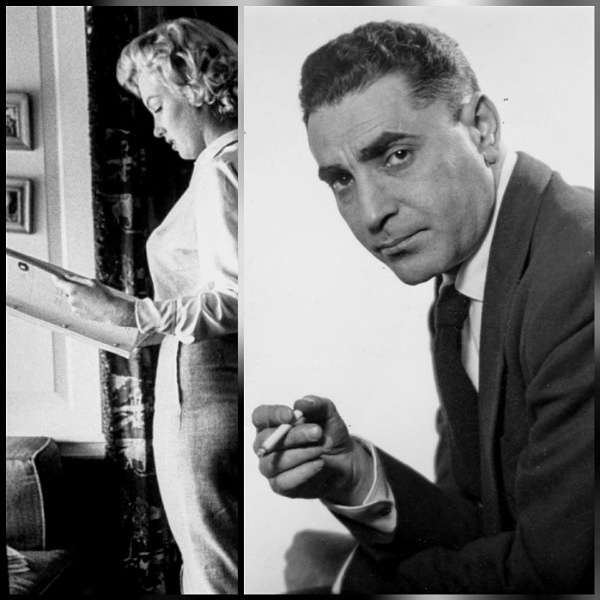
In 1951, Alfred Hayes adapted Clifford Odets’ play Clash by Night for the big screen, giving Marilyn one of her first dramatic roles. Hayes was also an accomplished novelist who is finally getting his due, as Scott Bradfield reports for the Los Angeles Times. Although Bradfield understates his contribution, Hayes crucially expanded the subplot involving Joe Doyle (Keith Andes) and his feisty girlfriend Peggy, allowing Marilyn to give one of her strongest, most natural performances.
“After a brief early success in 1946 with his first novel, All Thy Conquests, based on his military experiences in Italy during World War II, Hayes wrote on some of the most successful Italian neorealist films of the postwar period, such as Vittorio De Sica’s The Bicycle Thief (1948) and Roberto Rossellini’s Paisan (1946), for which he received an Oscar nomination. His subsequent move from New York to California was both financially lucrative and artistically unrewarding. While he continued fitfully producing the occasional novel and collection of verse (his best known poem, ‘Joe Hill’, became a protest song for Pete Seeger and Joan Baez), his film work was either uncredited (Nicholas Ray’s The Lusty Men) or uninteresting (A Hatful of Rain, a Fred Zinnemann ‘message’ film about drug addiction). Even his biggest project, Fritz Lang’s moodily intense Clash by Night (which in 1952 featured Marilyn Monroe in one of her first major roles), was little more than a competent alteration to a Clifford Odets play.
Over the last 15 years, however, Hayes the novelist has been rescued from anonymity by the canny revivalists at New York Review Books. Over the last few years, they have reissued a loosely defined ‘trilogy’ of Hayes’ short, powerful, first-person novels about a young writer (like Hayes) who moves to Hollywood (like Hayes) and lives to tell about it (like Hayes).
Hayes has been unfairly forgotten for many reasons; the biggest one was probably that he wasn’t writing the types of books that were being praised in the postwar era — the ones written by the likes of Mailer, Barth, Bellow and Roth. Those writers aspired to produce big books with big themes, big books about a big country. But like John Fante, another Hollywood-based novelist who suffered a similar eclipse of reputation, Hayes didn’t write those kinds of books. Rather, his novels explored the ways in which small souls sought to cut their own safe path across the world’s unforgiving bigness.”